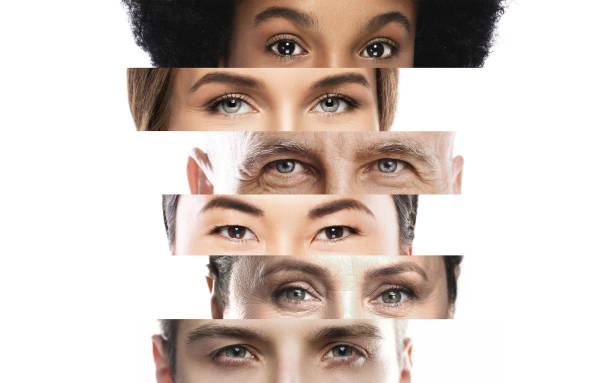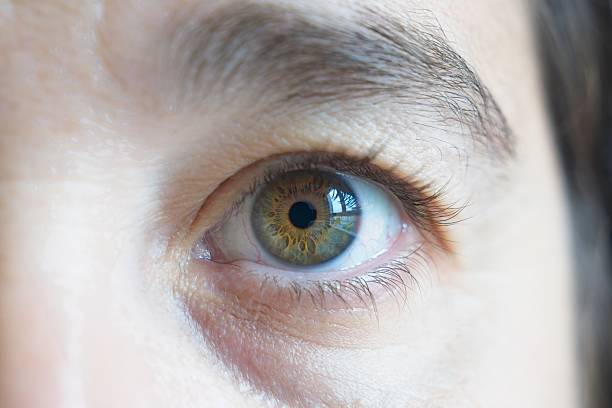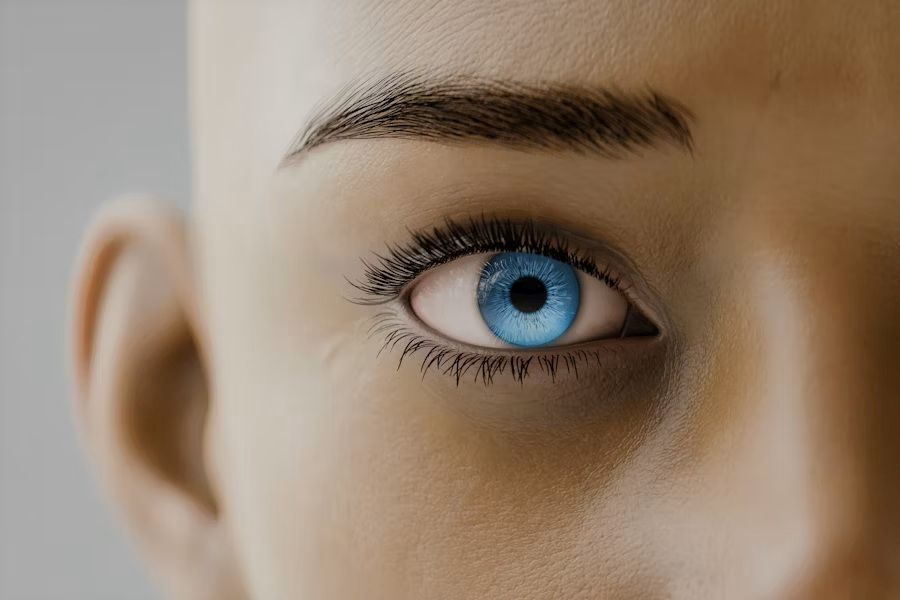Votre panier est vide
7 Critical Ways Your Eyes Impact Overall Health and Wellness

Your eyes are more than just windows to the soul – they're intricate indicators of your overall health and wellness. Understanding the profound connection between eye health and your body's wellbeing can help you maintain better health throughout your life.
Table of Contents
-
Understanding the Eye-Body Connection
-
How Vision Affects Brain Function and Mental Health
-
The Link Between Eye Health and Cardiovascular Disease
-
Eye Symptoms as Early Warning Signs
-
Impact on Balance and Coordination
-
Digital Eye Strain and Overall Wellness
-
Sleep Quality and Eye Health
Understanding the Eye-Body Connection
The eyes are remarkable organs that serve as direct extensions of our brain. They contain over one million nerve fibers that connect directly to the brain, making them unique windows into our overall health status. This intricate connection means that many systemic health conditions often show their first signs through changes in our eyes.
Our eyes require about 25% of the oxygen we breathe, despite being only 2% of our body mass. This high metabolic demand makes them particularly sensitive to changes in our body's systems, especially circulation and blood pressure.
Medical professionals can detect over 200 systemic diseases through routine eye examinations. These include diabetes, hypertension, autoimmune conditions, and even certain types of cancer, making regular eye check-ups crucial for preventive healthcare.
How Vision Affects Brain Function and Mental Health
The relationship between vision and brain function is bidirectional and profound. About 80% of our sensory information comes through our eyes, making them crucial for cognitive processing and mental well-being.
Poor vision can lead to increased cognitive load, as the brain must work harder to process unclear visual information. This extra effort can result in mental fatigue, decreased concentration, and even symptoms of anxiety and depression.
Research has shown that individuals with untreated vision problems are three times more likely to experience symptoms of depression. This connection highlights the importance of maintaining good eye health for mental wellness.
The Link Between Eye Health and Cardiovascular Disease
The blood vessels in your eyes provide a unique, non-invasive window into your cardiovascular system. During an eye exam, doctors can observe these tiny vessels directly, making the eyes invaluable for early detection of cardiovascular issues.
Changes in retinal blood vessels often precede more serious cardiovascular problems. Conditions like hypertensive retinopathy can indicate underlying high blood pressure before it shows up in routine blood pressure checks.
Studies have shown that people with retinal vessel abnormalities have a higher risk of stroke and heart disease, emphasizing the importance of regular eye examinations for cardiovascular health monitoring.
Eye Symptoms as Early Warning Signs
Your eyes often serve as early warning systems for various health conditions. Understanding these warning signs can lead to earlier intervention and better health outcomes.
Common eye symptoms and their potential systemic implications include:
-
Blurred vision: Could indicate diabetes or high blood pressure
-
Yellow eyes: Possible liver problems
-
Bulging eyes: Potential thyroid issues
-
Double vision: Possible neurological conditions
-
Sudden vision changes: Could indicate stroke risk
Impact on Balance and Coordination
Vision plays a crucial role in maintaining balance and coordination. The visual system works in concert with our vestibular system and proprioception to maintain spatial awareness and balance.
Poor vision can increase fall risk by 2.5 times, particularly in older adults. This connection between vision and balance highlights the importance of maintaining good eye health for overall physical safety and mobility.
The eyes help process spatial information and movement, contributing to:
-
Depth perception
-
Movement tracking
-
Spatial awareness
-
Postural stability
-
Hand-eye coordination
Digital Eye Strain and Overall Wellness
In our increasingly digital world, digital eye strain affects about 65% of adults. This condition doesn't just impact vision; it can lead to broader health issues including:
Extended screen time can disrupt our natural circadian rhythms, leading to sleep disorders and related health problems. The blue light emitted by digital devices can suppress melatonin production, affecting sleep patterns and overall health.
Practical tips for reducing digital eye strain:
-
Follow the 20-20-20 rule: Every 20 minutes, look at something 20 feet away for 20 seconds
-
Maintain proper screen distance and positioning
-
Use proper lighting and reduce glare
-
Consider blue light filtering glasses
-
Take regular breaks from screen time
Sleep Quality and Eye Health
The relationship between sleep and eye health is crucial yet often overlooked. During sleep, our eyes undergo important restoration processes, including:
-
Tear film regeneration
-
Corneal healing
-
Muscle relaxation
-
Metabolic waste removal
Poor sleep quality can lead to:
-
Dry eyes
-
Eye strain
-
Reduced focus
-
Increased sensitivity to light
-
Temporary vision changes
Getting 7-9 hours of quality sleep is essential for maintaining optimal eye health and overall wellness.
Final Thoughts
The intricate connection between eye health and overall wellness cannot be overstated. Our eyes serve as both indicators and influencers of our general health, making regular eye care an essential component of preventive healthcare.
Taking care of your eyes means more than just maintaining good vision – it's an investment in your overall health and quality of life. Regular eye examinations, proper nutrition, adequate sleep, and protection from digital strain are crucial steps in maintaining both eye health and general wellness.
Remember that your eyes are valuable tools for early detection of health issues and maintaining cognitive function, balance, and overall well-being. Make eye care a priority in your health routine, and your entire body will benefit.
Laisser un commentaire
Les commentaires seront approuvés avant de se présenter.




